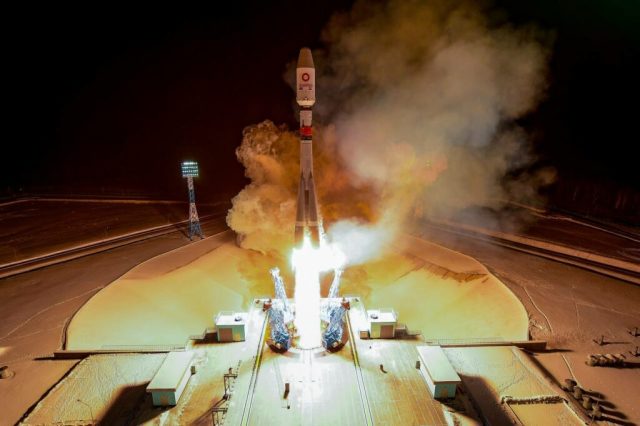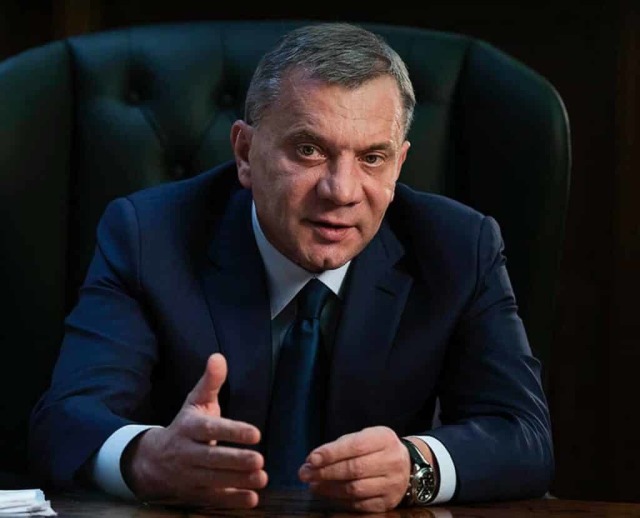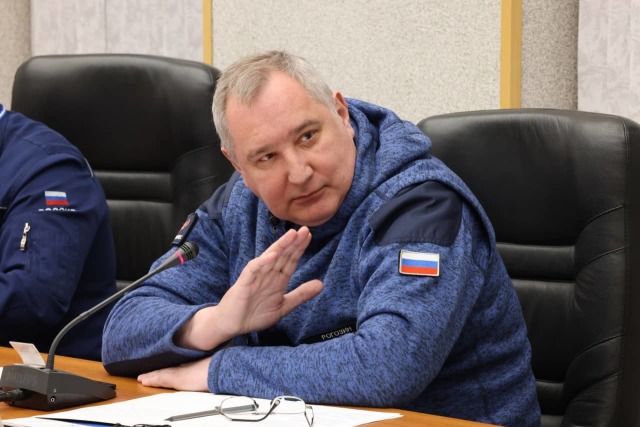Yuri Borisov, who replaced Dmitry Rogozin in this post, became the new CEO of Roscosmos from mid-July. Naked Science understands what inheritance (and in what condition) he got it.
Not just memes
On the Web, Dmitry Rogozin is most remembered for memes: sometimes successful, sometimes not so. But even if we evaluate only the Internet life, then Rogozin was definitely remembered. Especially his main space rival for attention on the Internet, Elon Musk. He did not fail to recall a joke about a trampoline when he created a manned ship, and also discussed what kind of tea they could drink during the meeting.
However, the finale of this discussion was not that unexpected, even unimaginable. Dmitry Rogozin accused Elon Musk of aiding the Nazis, as Starlink was used by the Ukrainian military during the current conflict. And Musk responded by trying to buy Twitter. Could have solved the issue cardinally, but did not — probably because Rogozin switched to Telegram?
Perhaps, Rogozin crossed all the usual limits of the behavior of a high-ranking leader on Twitter. However, it cannot be said that his posts had no right to exist and appeared completely from scratch. For example, he wrote the memorable "I suggest the United States deliver its astronauts to the ISS using a trampoline" in 2014, when the Soyuz spacecraft were the only way to deliver astronauts of any country to the space station. The situation changed only in 2020, when the first manned SpaceX Dragon Crew flight took place. That is, for six years Washington really depended on Moscow in terms of delivering crews to the ISS.
But it is unknown how Rogozin's successor uses the Internet's attention to space topics (and memes). The author failed to find Yuri Borisov's blog. But he is a doctor of technical sciences, and Rogozin was just accused of being initially a humanitarian. So there will be fewer reasons for memes. The mask will now have to tweet for two.
Relations with other countries
There is a topic more serious than memes. Borisov needs to rely mainly on his own strength in future space missions. NASA has maintained cooperation on the ISS, but Rogozin called the participation of Americans in the Venus-D project (we wrote about this audacious idea here ) inappropriate. Now you can do it yourself, if you can find the money.
And how things will be with income is an even bigger question. So, Rogozin canceled the launches of OneWeb in 2022 — one of the most successful contracts of Roscosmos. He also stopped cooperating with the European Space Agency on the Kourou cosmodrome in French Guiana (to make it clearer — almost at the equator itself). But the European partners still have devices that they cannot put into orbit without our rockets.
However, in a situation with a breakup of relations Rogozin was not the initiator. For example, since 2023, the United States has banned launching a load on Russian missiles that has American electronics. And in the case of spacecraft, these are almost all devices except those made in Russia.
In addition, with the beginning of the SVO in Ukraine, there were problems with paying for something in Russia, and the transportation of goods was difficult: one of the sanctions is a closed sky. In addition, the European partners were the first to cancel some missions. For example, the Germans asked to turn off their telescope at the unique double observatory "Spektr-RG" (control comes from Russia, but ours did not abuse this). And ESA is not enough that came out of the project "ExoMars — 2022", which could potentially detect life on Mars, has not yet returned the Kazachok landing platform developed by Roscosmos for this mission.
So, on the one hand, Yuri Borisov has less chance of cooperation and additional profit. In fact, there is only hope for the countries of Asia, the Middle East and Africa. On the other hand, the refusal of Western countries to cooperate today was inevitable with any behavior of the now former head of Roscosmos.
How criminal cases will help to fly to the Moon
Finally, about the most important thing — technological moments. We are already used to the fact that Russia does not land vehicles on the moon, does not fly to Jupiter and does not launch telescopes into deep space. You probably already know what I'm getting at. Roscosmos still does not consider landing astronauts on the moon in the near future. Not because it is impossible, but simply expensive. The Americans, who are now implementing the Artemis mission with a landing on the Moon, have estimated that each launch will cost them four billion dollars. This is about two annual budgets of Roscosmos.
That is, even the closure of all space programs will require the accumulation of funds for several years to create a means of landing on the Moon. Of course, no one will allow Roscosmos to do this, because, in addition to technological tasks, the state corporation has a social one — to provide jobs for 200 thousand people who make very different products — from rockets and satellites to electronics and even civilian products.
But there are also joyful breakthroughs on the technological front. Under Dmitry Rogozin, it was possible to achieve an unprecedented high reliability of missiles — almost 99%. More precisely, only one rocket exploded in 90 launches. With satellites, it's a little worse: it's difficult to get accurate statistics there, since the military does not disclose the results of launching their payload. But in general, we can say that in Russia (and, perhaps, in the USSR), space technology has never been so reliable. It seems that it's easy to establish control over ready—made and understandable products, but it wasn't possible before.

Night start
Image source: Roscosmos
The flip side is a lot of criminal cases related to embezzlement in the state corporation. Apparently, this is just Dmitry Rogozin's initiative — to restore order, albeit by strict methods. And here the team brought by him has yet to prove its purity. It has always been emphasized that criminal cases were initiated against projects that began before Dmitry Rogozin. The exception is the case of Ivan Safronov. But this sad story is not about money: Ivan is accused of treason. Unfortunately, the details are classified, but it seems that the previous head of Roscosmos fulfilled his moral duty. Vladimir Putin replied at one of the events that Safronov was under investigation because he had distributed secret data from Roscosmos. However, Rogozin said that the accused did not have access to state secrets in the space agency.
How many people in our time, even in absentia, will decide to object to the president? Unfortunately, this did not have a positive impact on Safronov's fate. But for Yuri Borisov, this is hardly a significant episode: unlike Rogozin, he has no moral obligations, he did not invite Safronov to work, everything happened before his arrival.
It is important that as a result of the established order, regular launches of Soyuz rockets have begun from the new Vostochny cosmodrome, and a launch pad for a heavy rocket is being completed" Hangar A5 ". This cosmodrome is located on the territory of Russia and allows us not to depend on agreements with Kazakhstan, where Baikonur is located. It is planned to launch the first mission to the Moon in the last 46 years, Luna—25, from Vostochny.
From the ISS to deep space
There is also a significant scientific mission. In 2019, Russia for the first time created and brought the Spektr-RG X-ray observatory to the L2 Lagrange point. It took one and a half million kilometers to fly to it from Earth. But there is no noise from the Ground and almost no fuel is spent to stay in it.
There are two telescopes in this observatory: the Russian ART-XC and the German eROSITA, which we talked about disabling above. This is such an important scientific project that even after the German part is turned off, colleagues from the USA and other countries cooperate with our scientists to gain access to the discoveries. The project will certainly remain Russia's flagship scientific project in space for the near future. And Yuri Borisov will be able to use his successes to show the contribution of Roscosmos to world science.
There is also a project that seems absolutely fantastic so far. Ship " Zeus with a nuclear propulsion system will be able to reach Jupiter's moons in a relatively short time and bring enough instruments to, for example, search for life on Europa, Jupiter's satellite. However, while ground work is underway, the flight is planned only for 2030.

The new head of Roscosmos, Yuri Borisov
Image source: Roscosmos
Let's go back to the present. Probably, you are already used to the fact that an International Space Station with dimensions of 100 by 50 meters is flying 400 kilometers above us. But this is the most expensive scientific project of mankind. Judging by the cooling of relations, Russia, the United States and a dozen other countries will not be able to unite again soon, which means that in the near future space stations will be more modest in size.
And until recently, the Russian segment was very modest in size. But in 2021, it was possible to dock the Nauka module, which increased the volume of living space by a third. There was enough space for three Russian cosmonauts to be on the ISS at the same time, universal workplaces for experiments appeared. It is a pity that all this is shortly before the station's descent from orbit, which is planned for 2027-2030. Where was he before? on the ground.
Since 2007, the module has been made and redone for the ISS, found flaws and tried their best to postpone the launch. But Rogozin decided to set this task. Not without adventures, however, the 20-ton module reached and increased the Russian segment of the ISS. It even allowed to revive space tourism — again, last year.
So technically, Russia cannot yet afford the same landing on the moon, but it has created a reserve in some areas and even started making modules for the future ROSS national station . So even after the ISS is launched from orbit (which the Russian Progresses will also probably have to do), manned cosmonautics in Russia will not die.
However, not everything is so rosy. Roscosmos is doing well with launch vehicles. Now six different missiles have been created, two more are in development. At the same time, it is possible to run them with 99 percent reliability (as we mentioned at the beginning). But we have difficulties with spacecraft.
This was also recognized by Rogozin at the expert council. Borisov first noted a similar question at the first meeting with employees: "The emphasis is on the serial production of spacecraft in the interests of creating orbital groupings for the Ministry of Defense and the civil sector, space instrumentation, unification of the component base," the telegram channel of the state corporation reports the essence of the meeting.
***
Yuri Borisov gets a good space infrastructure on Earth and the groundwork for technological projects in space, but difficult relations with Western partners. I wonder what the Russian space will be like under the new head of Roscosmos?
* The author of the text Alexander Baulin — editor-in-chief of the media "Pro Cosmos"

